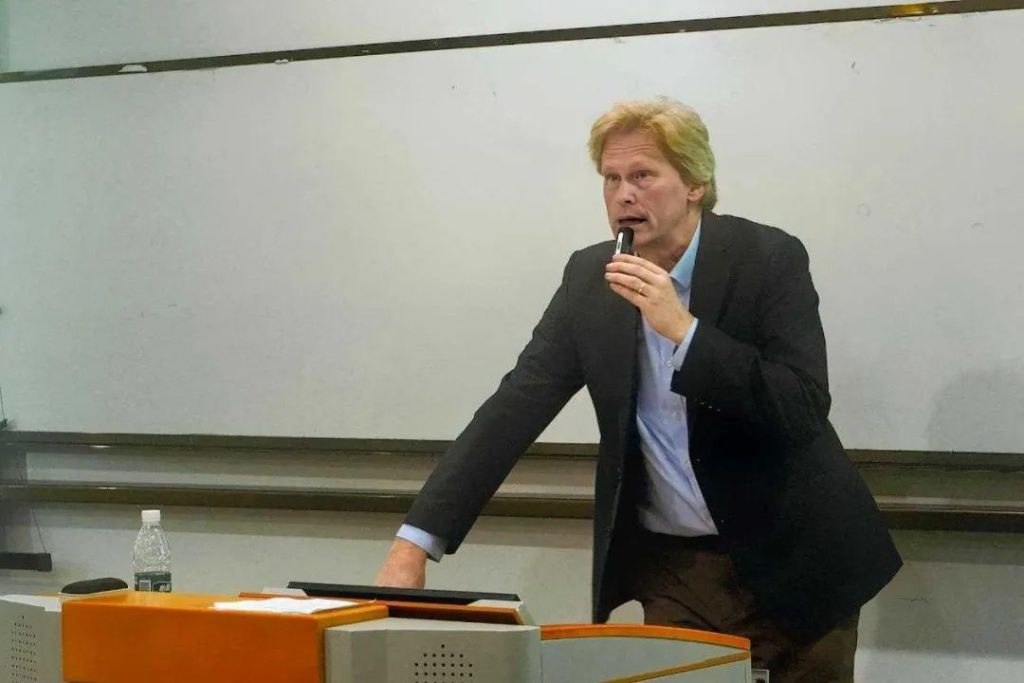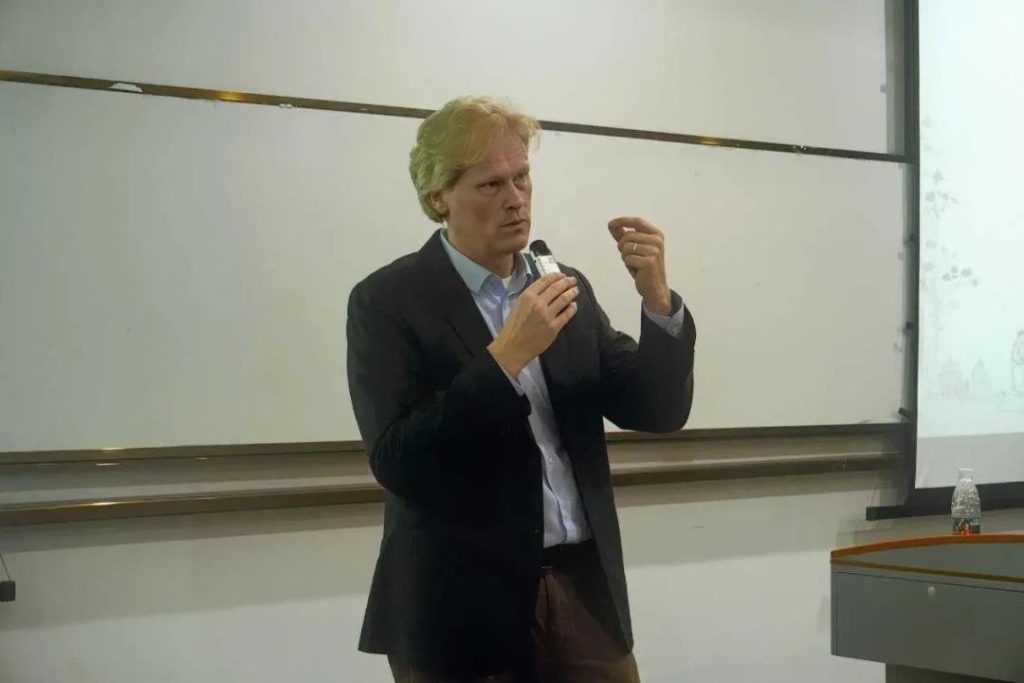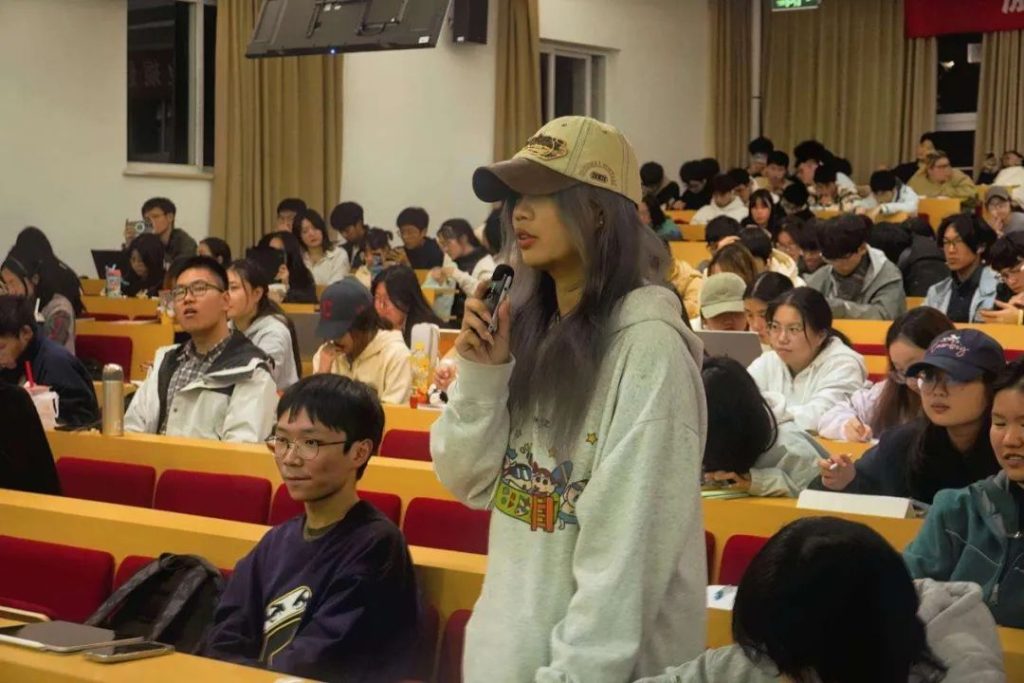
Editor's Notes:
In the era of globalization, digitalization and rapid development of intelligence, brand innovation has become a key factor in the sustainable development of enterprises. Whether it is product design, packaging innovation, marketing strategy or business model, domestic and foreign brands are constantly exploring and iterating to adapt to market demand and consumer preference changes. Sino-German Department of Branding has organized a series of lectures on "International Branding Innovation", inviting branding experts and scholars from the industry and academia to share the latest trends, methods and cases of international branding innovation, in order to inspire teachers and students to think innovatively and improve the level of branding discipline construction.
On the evening of November 25th, the Sino-German Branding School invited Volker Heubel (He Xinpeng) to give a special lecture to the students and teachers of the school on the topic of "International Branding Innovation".Chinese Tea Ceremony and Culture in the Perspective of Intercultural Living Aesthetics(Things and material culture in the Chinese way of tea Seen from the perspective of a transcultural aesthetics of living).
Presenter Introduction

Volker Heubel (He Xinpeng), Associate Professor at the Institute of Philosophy, College of Humanities, Tongji University, Ph.D. Supervisor, Visiting Professor at Zhejiang University, received his Ph.D. in Philosophy from the University of Würzburg, Germany, and his M.A. in Comparative Studies in Chinese Studies, Philosophy and Religion from the University of Tübingen, Germany. He is currently conducting research at Shandong University, Ritsumeikan University and Osaka University. In addition, Prof. Heubel studied tea ceremony in Kyoto, Japan and Germany for many years and has published several books in the fields of tea philosophy, Taoist thought, Japanese tea ceremony and natural aesthetics.
The Historical Origins and Legacy of the Tea Ceremony
The Chinese Tea Ceremony has a long historical origin and its lineage can be traced back to many dynasties. In the lectureProf. Heubel gave an in-depth analysis of the long history of Chinese tea culture.In this book, special emphasis is placed on the changes in tea drinking styles during the Tang, Song, Ming and Qing dynasties. From the boiling process of tea cakes in the Tang Dynasty, to the grinding of tea leaves into a fine powder and sipping in a large wide-mouthed bowl in the Song Dynasty, to the diversification of tea types and the wide array of tea utensils in the Ming and Qing Dynasties, each period has displayed a unique tea culture. These changes not only reflect the Chinese people's pursuit of the highest quality of life, but also highlight the inheritance and development of the tea ceremony throughout history.

The Core Spirit and Philosophy of the Tea Ceremony
The Tea Ceremony is not just a way of drinking tea, it is a spiritual pursuit and a philosophical manifestation.Quotes from philosophers and literary scholars with insights into the art of livingAlsoThe profound influence of Taoist and Buddhist thought in life choices and self-cultivation is exploredHe mentioned that the tea ceremony embodies the pursuit of self-cultivation. He mentioned that the Tea Ceremony embodies the pursuit of self-cultivation, cultivating aesthetics and nurturing the mind through the practice of the Tea Ceremony. This core spirit and philosophy makes the tea ceremony not just an art of living, but aCultural Heritage and Life Wisdom.

Cross-cultural exchange and fusion of the tea ceremony
The aesthetics of the tea ceremony can be seen in a number of ways, including the choice of tea utensils, the handling of tea leaves, and the artistic activities associated with tea drinking, etc. Prof. Heubel has particularly skillfully integratedNingbo Yueyao Celadon Art Exhibition and Tea CultureThe combination of the two reveals the deep intrinsic connection between the two and the unique flavor of Chinese aesthetics of life that they together constitute.

In addition, he citedLin Yutang's masterpiece The Art of Living, deeply reveals the embodiment of Chinese philosophy as an art of living in tea culture and its far-reaching influence on Chinese literature and daily life. At the same time, he also mentionedPhilosophy of the Japanese Tea Ceremony, emphasized that the tea ceremony as a system of life is not just an aesthetic experience, but an expression of an inner state of self.
The Modern Value of Tea Ceremony Culture
In the fast-paced modern life, tea ceremony culture still has great modern value. Focusing on the integration of tea ceremony culture and modern life, Prof. HeubelAdhering to the core concept of "unity of knowledge and action".With his work in theWuyishan's fieldwork and practice as a vivid sampleProf. Heubel points out that...Tea culture as a "lubricant" to harmonize the relationship between human beings and natureThe tea ceremony has great potential. Through the practice of the Tea Ceremony, one can find inner peace and tranquility in the hustle and bustle of the world, and find the fulcrum of a balanced life.

Interactive Q&A
During the interactive Q&A session, the teachers and students present centered around theThe lineage of tea culture and its profound influence on Chinese cultureProf. Heubel answered all the questions with detailed cases. He emphasized that enhancing public awareness of the historical heritage and diversity of tea culture is the starting point for the inheritance and development of tea culture. He encouraged young people toBreaking the Limits of a Single Perspectivenotice fromTaste Tasting, Visual Appreciation, Emotional ResonanceAnd other multi-dimensional entry, immersive exposure and experience of tea culture.


Professor Heubel's insights are like a key that opens the door to the wisdom of guarding and spreading the Chinese tea ceremony culture in a cross-cultural perspective for Chinese and German students.Provides new ideas and directions for the innovation and development of traditional culture.
